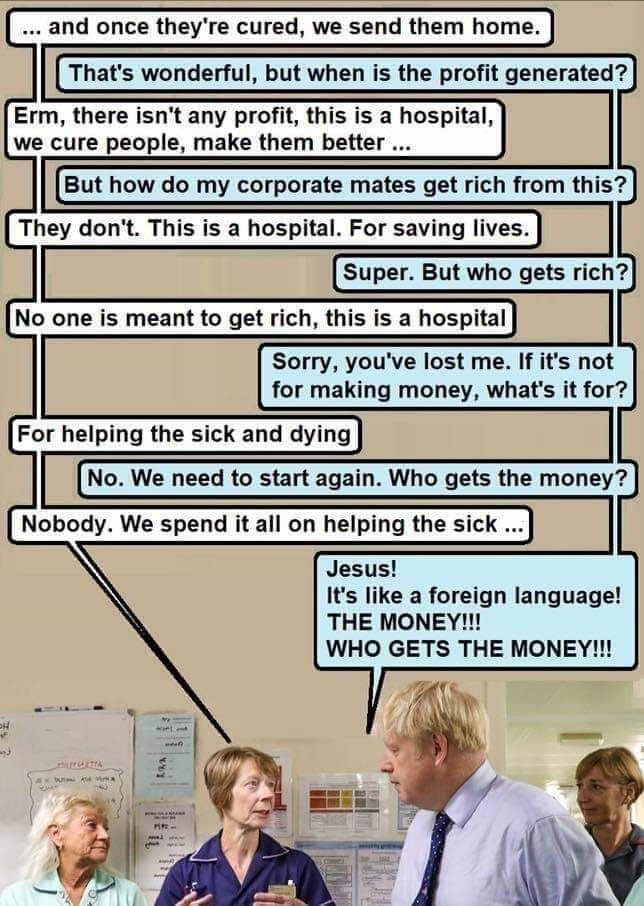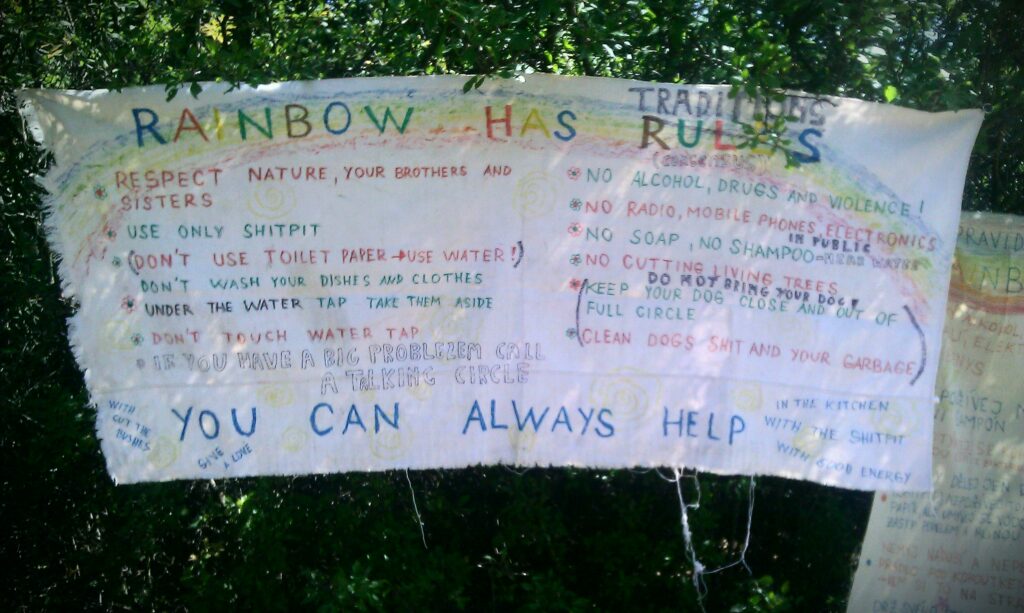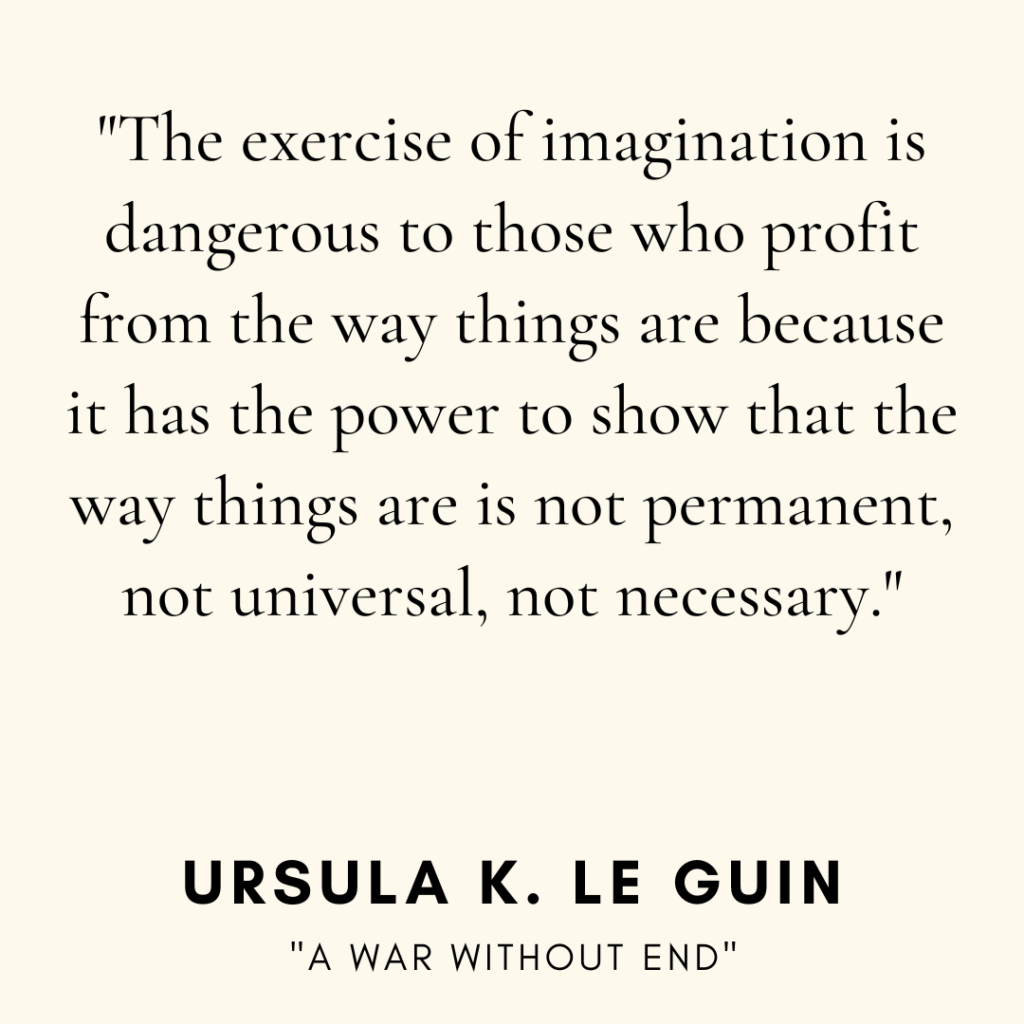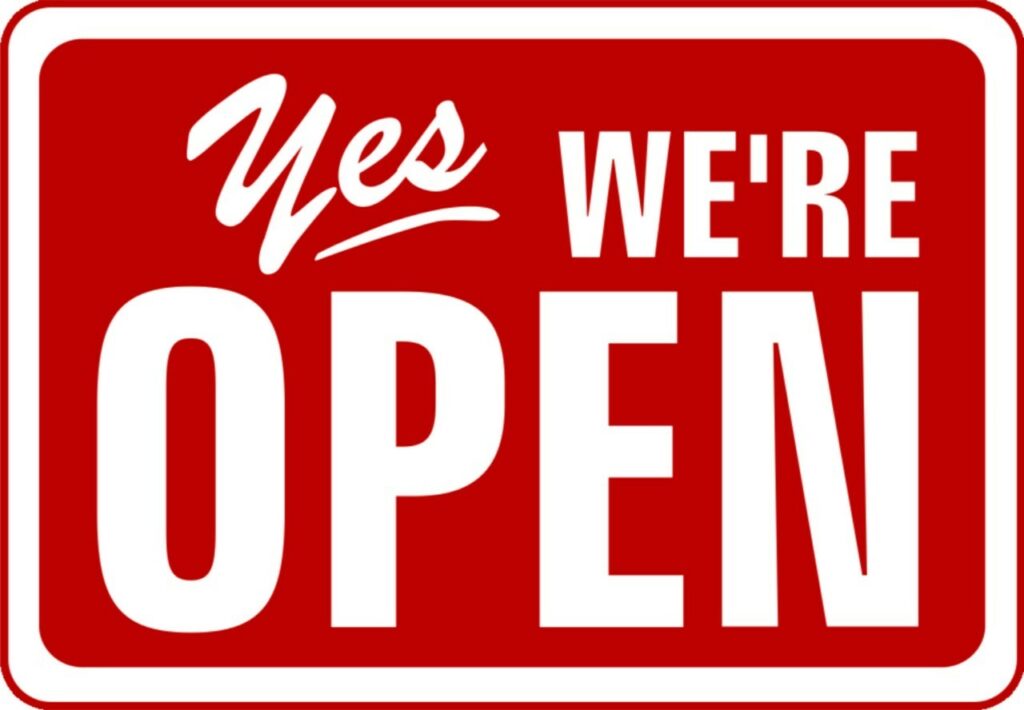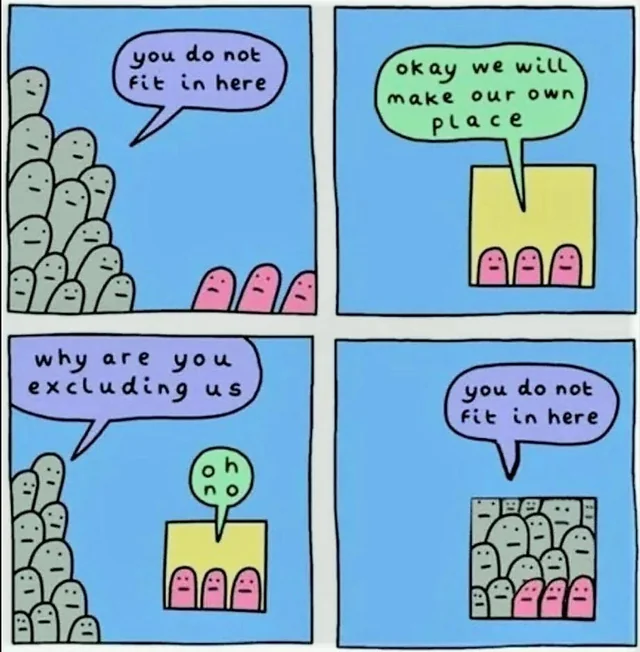Because current #mainstreaming, centrism, comfy pointless political “maturity” worked out so well, the last time we had a hard shift to the far right in the 1930s. Those “well-meaning” liberals at the time were patted on the back for their reasoned takes and rewarded for their civility right before it ended in a world war. That’s the dirty compost of history we’re all standing in today.
Fast-forward 100 years and today’s centrist are pretending not to smell the rot, their “middle path” has been disintegrating for the last 40 years. The old #mainstreaming legacy parties are crumbling into irrelevance, the dried leaves of the 40 years of #neoliberal wind. In the US, the corporate Democrats are led by animated corpses propped up by PR necromancy, while the #MAGA right eats their roting corpses, dresses in their cloth and steals their path, and without a blink of “common sense” gets away with calling it a revolution.
Meanwhile, people, the compost for real change, are screaming about inequality, rent, inflation, broken healthcare, unusable digital #dotcons infrastructure, and corporate theft of public services. But centrists hear all this and mutter: “Hmm, interesting. Now what could the problem be?” Western centrists stare into the rising far-right tide and scratch their heads, “shocked” that a decade of ignoring propaganda and letting fascists organize on #dotcons led to… #fascism. A real surprise outcome… Who knew that letting lies shout louder than truth in the “free market of ideas” might be a real problem?
Into that empty vacuum steps the hard right, waving ethnic nationalism and promising a future soaked in nostalgia and fear. What we need to say clearly is this is just another side of the same #nastyfew elitists hoarding wealth while selling fascism to the angry and disillusioned.
The only serious force that still tries to push back? The #fashernista fragmented, much-smeared left. In Germany, in France, even in the UK (before being gutted by #NGO centrists). What do our liberal centrists do? They blow smoke and mirrors, equating the left with the right: “One wants to redistribute wealth and build homes; the other wants to criminalize poor people and deport anyone not white. Clearly, both are equally extreme.” This is simply more mess to compost
So what’s the current centrist path? Steal the far right’s policies – but do it “sensibly.” In the UK, Starmer’s “Labour” has become Farage’s reform UK in a red tie. Deportations, austerity, privatisation, all served with a smug banal centrist grin. The outcome, voters, seeing no real alternative, just go for the real fascists instead of the fake centrist “liberal” remix. More mess to compost.
Macron did the same in France by burned his own coalition to stop any shift to the left, claiming they’re just as bad as Le Pen’s mess. Why? Because one side wants public housing and the other wants a racial purge. Yes the same.
So, why won’t centrists move left? The answer is simple, billionaires fund the centre. The left wants to tax them, so the rich choose death – not their own, of course, but ours. A sacrifice the 1% #nastyfew are happy to make from both the right and the “centre”. This is more than mess to compost, the old solution was a guillotine, do we have a different path this time?
Another alt centrist path? Imagine if grassroots parties dared to compost the past instead of embalming it. Imagine if they moved left, rebuilt public services, reversed neoliberal theft, and honoured the postwar social contract, you work, you live with dignity. This is in part what the #OMN is about: composting the #deathcult, seeding native projects with #4opens, growing radical alternatives in the cracks.
What everyone can now see is that the old centre is collapsing. What comes next? People urgently need to see is that we don’t need to move right with the claps of the centre, what we do need is to dig down, get messy, and grow something new – rooted, trust-based, and open. Because we’re not choosing between liberal decay and fascist fire. We’re making compost. And from compost, the future grows.

Maybe we don’t then get the guillotine out…


